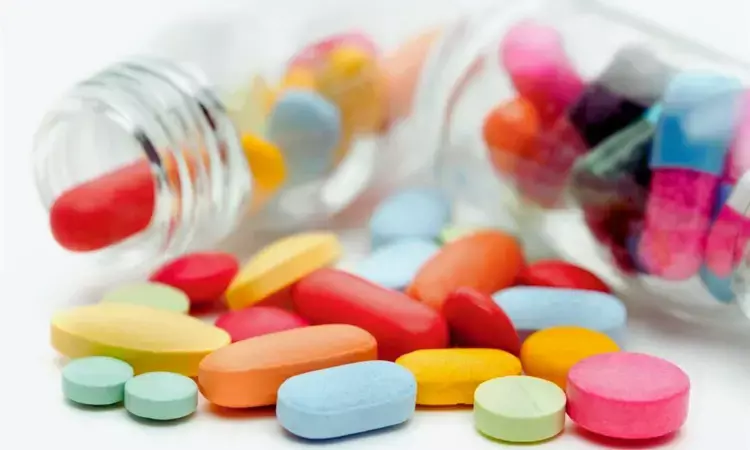- Home
- Medical news & Guidelines
- Anesthesiology
- Cardiology and CTVS
- Critical Care
- Dentistry
- Dermatology
- Diabetes and Endocrinology
- ENT
- Gastroenterology
- Medicine
- Nephrology
- Neurology
- Obstretics-Gynaecology
- Oncology
- Ophthalmology
- Orthopaedics
- Pediatrics-Neonatology
- Psychiatry
- Pulmonology
- Radiology
- Surgery
- Urology
- Laboratory Medicine
- Diet
- Nursing
- Paramedical
- Physiotherapy
- Health news
- Fact Check
- Bone Health Fact Check
- Brain Health Fact Check
- Cancer Related Fact Check
- Child Care Fact Check
- Dental and oral health fact check
- Diabetes and metabolic health fact check
- Diet and Nutrition Fact Check
- Eye and ENT Care Fact Check
- Fitness fact check
- Gut health fact check
- Heart health fact check
- Kidney health fact check
- Medical education fact check
- Men's health fact check
- Respiratory fact check
- Skin and hair care fact check
- Vaccine and Immunization fact check
- Women's health fact check
- AYUSH
- State News
- Andaman and Nicobar Islands
- Andhra Pradesh
- Arunachal Pradesh
- Assam
- Bihar
- Chandigarh
- Chattisgarh
- Dadra and Nagar Haveli
- Daman and Diu
- Delhi
- Goa
- Gujarat
- Haryana
- Himachal Pradesh
- Jammu & Kashmir
- Jharkhand
- Karnataka
- Kerala
- Ladakh
- Lakshadweep
- Madhya Pradesh
- Maharashtra
- Manipur
- Meghalaya
- Mizoram
- Nagaland
- Odisha
- Puducherry
- Punjab
- Rajasthan
- Sikkim
- Tamil Nadu
- Telangana
- Tripura
- Uttar Pradesh
- Uttrakhand
- West Bengal
- Medical Education
- Industry
IPC Launches QR Code-Enabled Online ADR Reporting Platform to Boost Patient Safety

New Delhi: In a major push toward digital healthcare transparency and patient safety, the Indian Pharmacopoeia Commission (IPC) under the Ministry of Health and Family Welfare has unveiled a new QR code enabled Online Adverse Drug Reaction (ADR) Reporting Platform, revolutionizing the way patients, caregivers, and consumers can report side effects from medicines.
The initiative, developed by the National Coordination Centre Pharmacovigilance Programme of India (NCC-PvPI), empowers individuals to instantly report suspected ADRs by simply scanning a QR code through their smartphones—anytime, anywhere.
This innovative system, prominently featured on a newly released IPC-PvPI poster, simplifies ADR reporting and eliminates procedural delays by enabling direct digital submission of adverse event details.
The platform ensures real-time data capture, strengthening India’s pharmacovigilance framework and reinforcing its commitment to patient-centric and technology-driven healthcare oversight.
“We believe this initiative will simplify ADR reporting, allowing patients/caregivers and consumers to directly report suspected ADRs by scanning a QR code with their smartphones—anytime, anywhere. The streamlined digital interface ensures faster, more efficient reporting, reinforcing real-time surveillance and patient-centric pharmacovigilance,” an IPC official said.
The poster also highlights the PvPI Toll-Free Number (1800-180-3024), offering patients multiple avenues to report suspected drug reactions, further promoting awareness and proactive participation in drug safety monitoring.
Mpharm (Pharmacology)
Susmita Roy, B pharm, M pharm Pharmacology, graduated from Gurunanak Institute of Pharmaceutical Science and Technology with a bachelor's degree in Pharmacy. She is currently working as an assistant professor at Haldia Institute of Pharmacy in West Bengal. She has been part of Medical Dialogues since March 2021.


